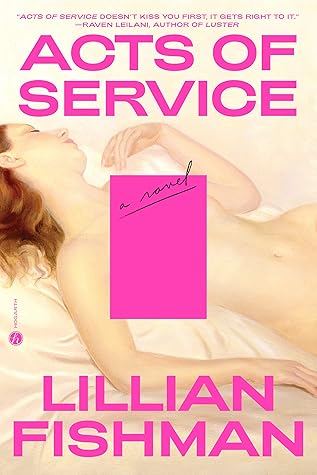More on this book
Community
Kindle Notes & Highlights
You know, I said to Fatima, I don’t have any idea. I think that first I have to get the thing I want, and maybe then I can figure out why I wanted it, or whether it’s good.
Perhaps it was her anxiety I was attracted to—the way it forced me, by contrast, into an unusual ease and confidence.
I was plunged back into that feeling I’d had when I walked out of the café the day before—the new sense of my life as a spectacle for some lukewarm viewer.
Up until this point I had spent a lot of time talking myself out of the things I liked so that I could be a different, better kind of person.
Over the previous decade I had talked myself all the way from an attraction to women into a political commitment to lesbianism, and all the way from a general pleasure in the indulgences of life into a bitter shame toward all the trifling things I used to enjoy—charm and harmless deceits, intrigues, vanity, pretty women, good dancers, cab rides and coffees out, men who whistled when I passed, remarks that made me blush.
I never admitted it to anyone, but the fact was that if you’d talked to me in my sleep, I would have told you it was impossible to choose between men and women. It was like choosing between land and sea.
It takes a little bit of sex to remember you don’t really know people when you see them on the street. Sex forces you back into awe—reveals to you just how difficult it is to know someone, just how much attention and self-delusion are required to conjure love.
Adultery had always been treated as a kind of understood indiscretion because it allowed a monotonous life to remain bearable, gave a new shine to the things one had chosen.
We were taught to value love yet not to rely on it too heavily, because the world of excessive freedom in which we had been made would not foster the long-suffering loyalty that love required.
We were encouraged to care deeply about the state of our world but our ability to affect it personally was very much in doubt.
I envied extraordinarily religious people, who subscribed to a code that determined the things they should want, the things that were good, and the things that were bad. They had these measures of certainty. And they had rituals that made their lives feel governed by the logic of time: baptisms, holidays, weekly ceremonies, recitations, prayers. They were, I imagined, striving toward a set of impossible ideals and yet constantly forgiven for their failure to achieve.
Among queer people self-knowledge seemed especially important because we engaged in a continuous process of recovering, of dredging up what we had suppressed, and of interrogating what we had assumed. Openness and sincerity were prized above all else under a governing practice of radical tolerance, in which speaking about anything at all could yield only benefit and in which secrets could develop only into shameful wounds.
Sometimes it is a ubiquitous though painful loss, or a persistent fixation on your own inadequacy in the face of this large and agreeable life and its endless opportunities. A life knows that it needs a shape and, taking cues from films and lives it has glimpsed, chooses a core around which to bend itself. A life recognizes the theater in which its keeper appears most real.
Next to him I felt almost transparent. When I watched the way he treated Olivia I began to suspect that what he relished most was drawing out a person’s emotions and desires while remaining completely untouched by them.
No, I enjoy that, how you absorb information, Nathan said. It’s your art. My art is fucking.
Nathan found Olivia’s abjection so strange, so manic—as though she were possessed, in need of medicine, or shock—that though he had never been particularly interested in her he began to approach her as he might a troubling piece of research, determined to discover the cure she required.
He had created his own predictable capitalist microcosm, in which I would be granted indulgence and security only once I had already reached financial stability on my own. But it was also true that I was living artificially, debt-free, in a construct of financial need.
They said what I believed and knew to be true, but they ignored our reality: that women were valuable only until their bodies expired, that women who gave themselves only to each other relinquished this value altogether.
It was fantasy to look for what was at my very core, for what was me beneath all the noise, as though there existed a sexual truth that was born in me, immune to every social lesson about what is sinister and what is sweet. At my very core were only the smallest seeds of desire, which had grown toward the directions where the light of the world guided them.
We love what disturbs us if it chooses us and tells us how we matter. Don’t we love a cashed check, a passport, the touch of a president’s hand, though each pleasure rests on a cruelty just beyond our sight? The finger points, without equivocating, at us, and we wonder at being chosen.


